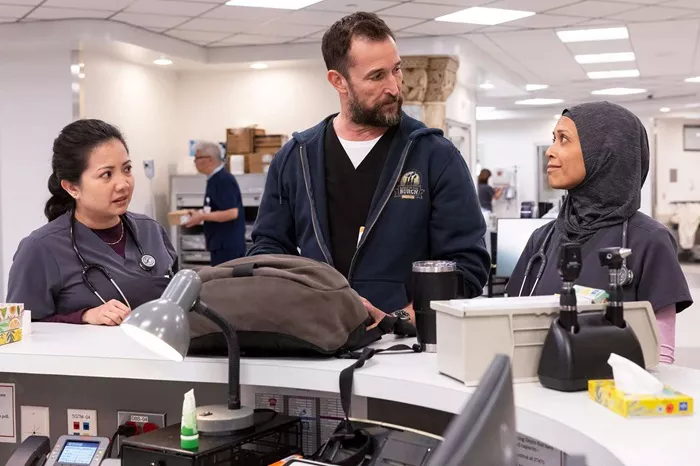Max’s new medical drama, The Pitt, takes a bold step into the genre by offering a raw and unflinching portrayal of emergency medicine. Created by R. Scott Gemmill, John Wells, and Noah Wyle, the series bears a striking resemblance to the iconic ER, both in tone and theme. However, it brings a distinct edge by focusing on the challenges of modern-day emergency care, confronting the realities of the profession with a level of graphic intensity rarely seen in its predecessors.
A Familiar yet Distinctive Premise
At the heart of The Pitt is Dr. Michael “Robby” Robinavitch, played by ER alum Noah Wyle. Robby leads the emergency room team at a Pittsburgh hospital, grappling with the high-stakes pressure of saving lives while managing personal conflicts, unrelenting administrative demands, and the training of new doctors. While the core premise of The Pitt mirrors other medical dramas—emergency room chaos, complex relationships, and life-and-death scenarios—the series differentiates itself through its unapologetically graphic portrayal of injuries and its time-stamped narrative approach. Each episode spans just one hour of the doctors’ intense, non-stop shifts, adding a layer of realism that draws viewers deeper into the unforgiving world of modern emergency care.
Pushing the Boundaries of Medical Drama
Unlike traditional network medical dramas like ER or Grey’s Anatomy, which often leave the specifics of gruesome injuries to the imagination, The Pitt brings its audience face-to-face with unsettling, graphic depictions of trauma. The show’s debut episode sets the tone with shocking images of burned hands and, more grotesquely, a degloved leg—a visceral shock that sets the series apart. Such raw depictions of medical emergencies would likely be censored or toned down in a network series, but as a Max original, The Pitt is free to show the unvarnished truth of emergency medicine.
Realism at the Core of The Pitt
The shocking medical gore in The Pitt isn’t just for shock value. It serves to heighten the show’s commitment to realism. The episodes focus on a single hour of chaos, highlighting the swift rotation of patients—some saved, others lost—all in the span of just sixty minutes. The injuries presented are designed to look as authentic as possible, further immersing viewers in the chaotic environment of an emergency room.
The show’s gritty realism is complemented by its minimalistic approach to emotional storytelling. There are no dramatic musical cues or sentimental monologues. Instead, the sounds of the emergency room—the beeping of machines, the hum of background chatter—take center stage. This lack of a traditional dramatic score emphasizes the raw, unfiltered nature of the medical world, where every second counts and the human cost is laid bare.
A New Era of Medical Dramas
The Pitt is a bold reimagining of the medical drama genre, offering a more brutal, honest look at what it’s really like to work in an emergency room. With its commitment to graphic realism and a focus on the harsh truths of modern medicine, The Pitt sets itself apart from its predecessors, catering to an audience eager for a more authentic and visceral viewing experience.
New episodes of The Pitt drop every Thursday on Max.
Related topic:
Tulsa King Season 3 Return: Sylvester Stallone Confirms
David Fincher’s Squid Game Remake: Definitive Update from Original Creator
Chad Powers Teaser: Glen Powell’s Makeover for Hulu Comedy

